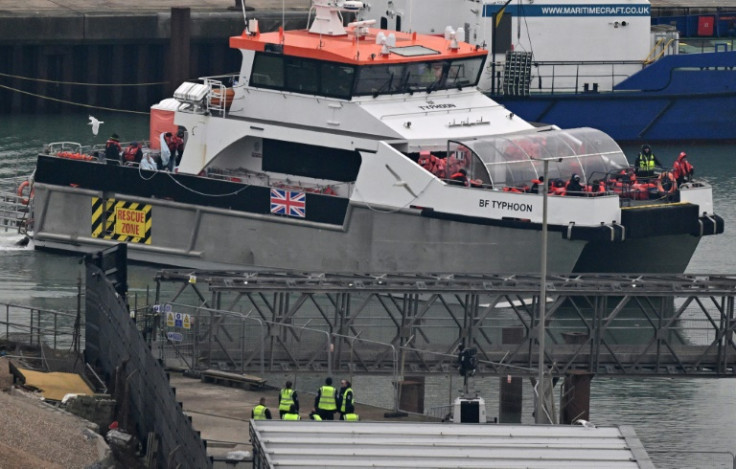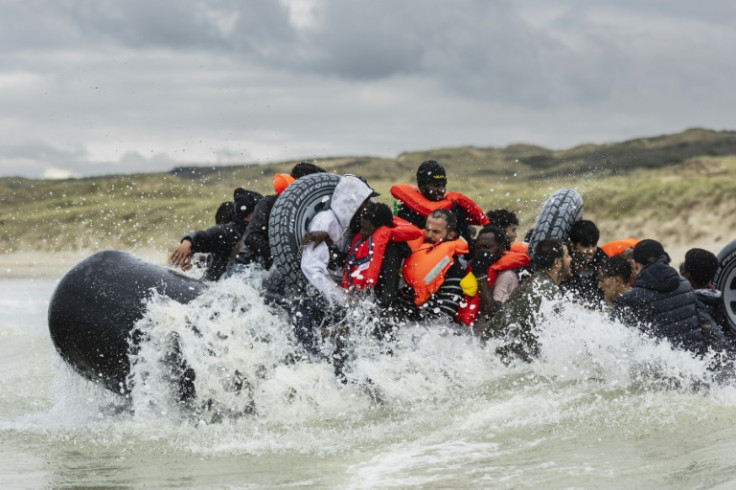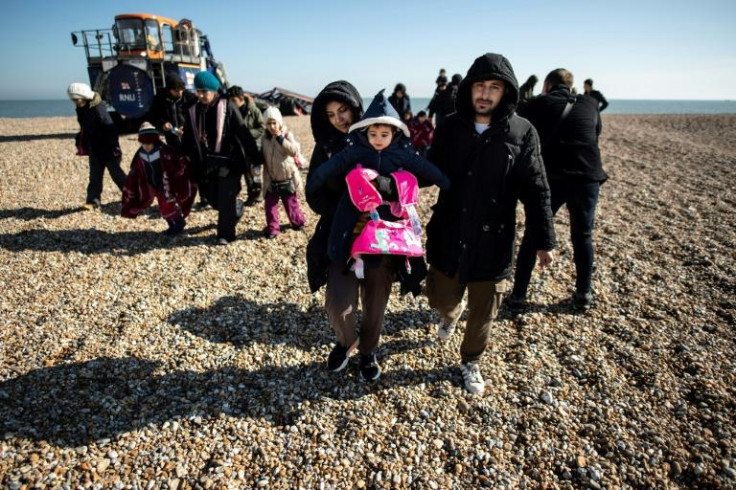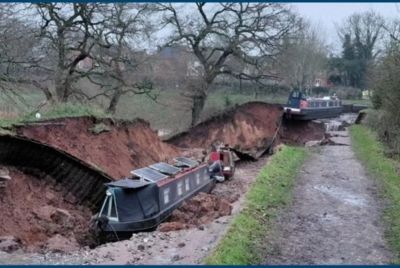'Labour Made a Huge Mistake': Study Reveals Migrants Now Outnumber UK Army, Navy and RAF Combined
Framed as a 'huge mistake' by critics, the numbers add more fuel to the already burning issue in British politics.

Immigration has once again surged to the centre of Britain's political storm after a new study claimed that migrants arriving across the Channel in the UK now outnumber the combined strength of the Army, Navy and RAF.
The finding, published by Migration Watch UK, piles pressure on Labour at a time when the party is already accused of mismanaging border policy during its earlier years in government.
Framed as a 'huge mistake' by critics, the numbers add more fuel to the already burning issue in British politics, one that has shaped elections, split parties, and fuelled tabloid headlines for two decades. But does the comparison really hold up?
Migrants vs Military: The Numbers
According to the group's analysis, more than 182,000 people have arrived in the UK via small boat crossings since records began in 2018. By comparison, the Ministry of Defence counted 180,779 serving personnel across the Army, Navy and Royal Air Force as of January 2025. Migration Watch highlights that nearly 90% of those arriving are men, with two-thirds aged between 18 and 39, a demographic they describe as 'military age.'

The group's chairman, Alp Mehmet, said the figures showed a 'serious failure of border control.' Supporters of tougher restrictions have seized on the comparison, framing the arrivals as a national security risk.
However, critics argue that presenting asylum seekers in military terms is misleading and inflammatory. Experts at Oxford University's Migration Observatory note that while most arrivals are young men, they are not soldiers but individuals fleeing war, persecution or economic hardship.
Political Fallout & The 'Huge Mistake' Claim
Critics of Labour have responded sharply.

Alp Mehmet calls the situation evidence that Labour failed to 'stem the tide.' Meanwhile, Shadow Home Secretary Chris Philp has labelled Labour's decision to cancel the Rwanda removals policy 'a huge mistake,' saying it removed a key deterrent before it even started.
'Labour made a huge mistake by cancelling the Rwanda removals deterrent before it even started with no replacement. Every illegal immigrant should be immediately deported upon arrival. Then the crossings would soon end,' Philp said.
Reform UK leader Nigel Farage also weighed in on the study with grave concern. In a post on X, Farage said, 'There are now more Channel migrants in the UK than we have active military personnel. This is a national security emergency, and I have said so for years.'
There are now more Channel migrants in the UK than we have active military personnel.
— Nigel Farage MP (@Nigel_Farage) September 11, 2025
This is a national security emergency, and I have said so for years.
In response, Labour's Home Secretary Shabana Mahmood, has pledged reforms including relocating asylum seekers from hotels to former military barracks, and implementing a 'one-in, one-out' returns deal with France. But critics argue these measures are too little, too late.
A Decade in the Making
The fierce backlash underscores how immigration has become politically toxic over the past two decades. The turning point for Labour came during the 2010 election campaign, when then-Prime Minister Gordon Brown was caught describing a voter who raised concerns about migration as a 'bigoted woman.' The gaffe, later dubbed 'Bigotgate,' was seen as proof by many commentators that politicians were out of touch with public concerns.

Since then, immigration has consistently polled as a top public concern. Under New Labour, policies such as opening the labour market to Eastern European workers in 2004 contributed to a sharp rise in arrivals, far above the government's forecast. Although many economists highlighted the economic benefits, public anxiety rose in tandem with sensationalist media coverage, from stories of 'floods' of asylum seekers to lurid tabloid myths.
The Conservatives capitalised on these fears with their 2010 pledge to reduce net migration to the 'tens of thousands' — a target they never met. By the time of the 2016 Brexit referendum, immigration had become the defining issue.
With anti-immigration protests spreading across the UK, these new figures are almost certain to trigger fresh unrest. For Labour, the real test now is whether it can turn promises into credible action fast enough to calm public anger. All eyes will be on how Starmer's government responds.
© Copyright IBTimes 2025. All rights reserved.





















